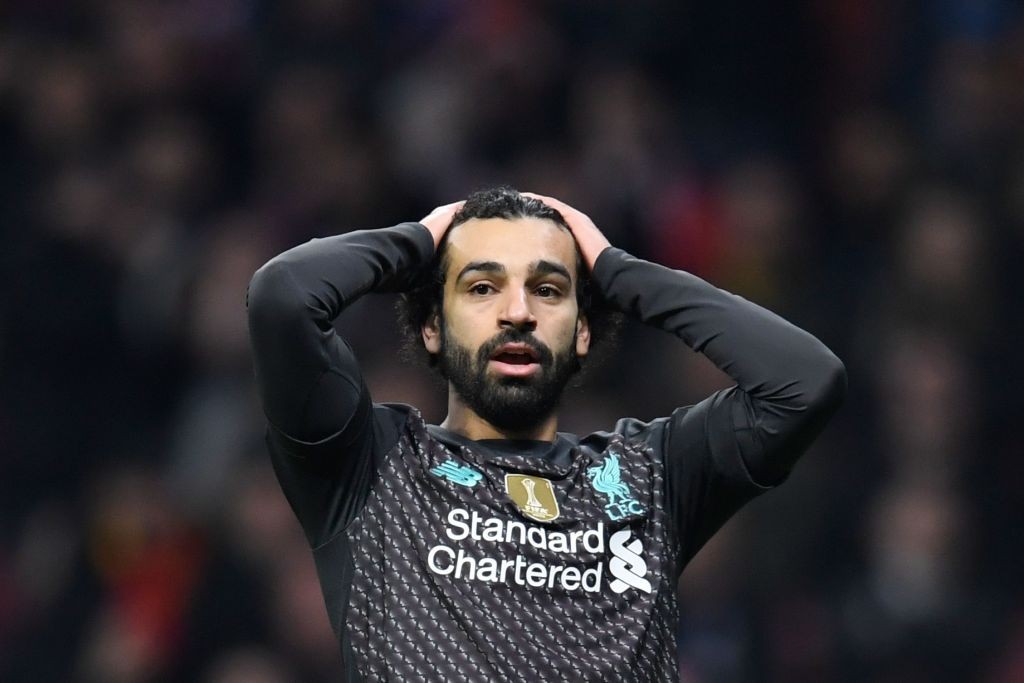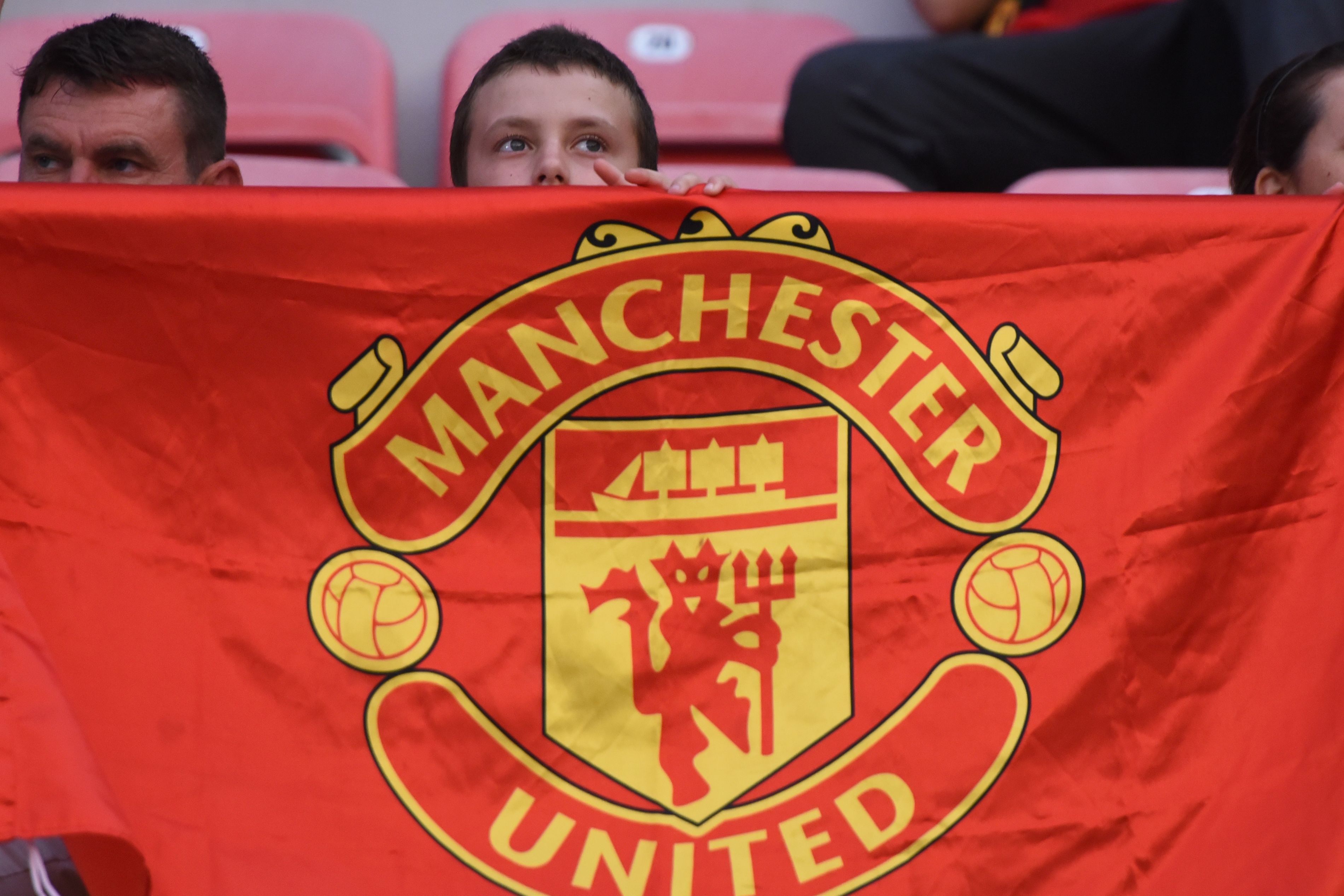Arsenal defined their intention with a well-rounded performance against Manchester United, as Mikel Arteta’s system passed a big test.
Arsenal beat Manchester United 3-2 to put 50 points on board after 19 games, continuing their best start to a Premier League season. The youngest manager leading the youngest squad still keeps many on the edges to consider the Gunners out-and-out favourites to win the title. But their rise is no coincidence.
This is different from a team that started the season in peak form; many suggested and then showed signs they might drop off at some stage. Even without Gabriel Jesus, they have looked strong, and there is no indication whatsoever they will prey on the various narratives that are going about in the media. Instead, Arsenal have managed to quash each of them and bring about an element of chaos into their game.
Arsenal had 63 touches in the Manchester United box in this match.
No side have had as many in a single Premier League game in 2022-23 so far.#AFC #ARSMNU pic.twitter.com/s0rgwT5klr
— Opta Analyst (@OptaAnalyst) January 22, 2023
Barring Manchester United, no other team has beaten Arsenal this season in the Premier League. Instead of being wary of a repeat performance from Erik ten Hag’s side, Mikel Arteta chose to rectify those errors from Old Trafford and put in a masterclass display at the Emirates against the Red Devils.
Two sloppy individual errors saw Marcus Rashford and Lisandro Martinez score their goals in the game. Some important tactical tweaks after each goal ensured Arsenal regained their foothold and subsequently converted their chances, including a dramatic late winner to collect the points.
What stood out was Arsenal’s dominance on the pitch in all areas, with the forward press particularly impressive in the victory. They pushed Manchester United deep into their territory for most parts and forced Christian Eriksen to fend off challenges and support the backline more than influencing the final third.
Arteta knew how to exploit Manchester United’s structure, which seemed more intent on protecting than attacking. They were set up to play on the counter. But Arsenal are the best team in the league in transition, and their shape prevented any surprise counters throughout the clash.
Opponents, including Manchester United, knew precisely how Arsenal would play but have always needed help anticipating their next move. With the energy and intensity on the pitch, the element of chaos and surprise have always come to favour the Gunners in their quest to win football games this term. Here we look at a key aspects that the Gunners did right and how the game between Arsenal and Manchester United panned out.
What did Arsenal learn from the Old Trafford loss?
Going into the game at Old Trafford, Arsenal were in top form and favourites to win the game. They dominated most parts but fell short of Erik ten Hag’s tactics to hurt them. The Manchester United boss anticipated a few gaps in the Gunners’ system and exploited them through intricate passing moves and the pace of Marcus Rashford.
Oleksandr Zinchenko's touch map yesterday.
He's arguably been Arsenal's most important player in big games this season.
Press-resistant, keeps cool at all times, drives the team forward, and as shown, can operate literally anywhere on the pitch.
What a signing. pic.twitter.com/8Aketxaci9
— Mike Stavrou (@Mike_Stavrou) January 23, 2023
Antony scored then by using the space afforded by Oleksandr Zinchenko’s movement. Later, Rashford scored two swift counter-attacking goals that exploited the high-line Arsenal deployed. Arteta thwarted those issues at the Emirates as the two conceded goals were borne out of individual errors.
Zinchenko was in his element to help the team gain maximum control of the ball and was their key man in helping push Manchester United backward. The full-back left ample space for Antony to exploit. But the Brazilian was busy helping Aaron Wan-Bissaka keep Gabriel Martinelli at bay.
Even if Antony tried to take the ball away, Gabriel Magalhaes was well-positioned to deal with it. On one occasion, when the Brazilian got free and went charging inside the Arsenal box, Thomas Partey showed unbelievable acceleration to sniff the threat out.
Saliba’s high line on the other flank ensured the opposition never had pace on the ball. When in possession, the Frenchman, alongside Ben White and later Takehiro Tomiyasu, would bundle any efforts from Manchester United to progress the ball. Moreover, the Japanese full-back had more control of Rashford than Ben White in the first half.
Manchester United’s lethal counter-attacking style was reduced to an element of luck. The Rashford goal was from an error by Partey, who misjudged the Englishman’s movements. The second was a massive error from Aaron Ramsdale, who should have done better by leaving the probing ball to his defenders.
Arsenal’s press is the best in the league
The structure of how Mikel Arteta set up his press is worth talking about. Their aggression in the task proved effective and provided the basis for the win over Manchester United. It also resulted in Arsenal dominating their opponents for 90 minutes, although they would have liked the winner much earlier.
Mikel Arteta’s Arsenal – the most compact team in the land, & it all stems from their positional play.
Look at how wide Martinelli & Saka stretch the pitch, how many numbers there are in the box, the compactness behind it with Zinchenko inverting..
ELITE!pic.twitter.com/5w9yLaCELf
— EBL (@EBL2017) January 23, 2023
The Arsenal forwards always tried to push the Manchester United backline and often forced them to pass the ball down the left-hand side. They had already diagnosed the weakness in their system and felt Lisandro Martinez and Luke Shaw were the weak links. Bukayo Saka and Eddie Nketiah were key to this and often supported by Ben White, then Tomiyasu.
Their main objective was to keep Martinez from having time on the ball, which put the Argentine under tremendous pressure and not finding his preferred passing lane. Moreover, Nketiah used his energy to press David de Gea aggressively, putting the Spaniard under pressure and de-stabilising the backline.
For this, Granit Xhaka, Martinelli and Oleksandr Zinchenko were responsible for pressing on the right side of Manchester United’s defence. When the ball came to that area, Saka, Nketiah and Ben White were pinning the Manchester United defenders on a man-to-man basis.
Even as White and Zinchenko left space behind due to their roles, Gabriel Magalhaes and William Saliba were well-settled to deal with the threat. They found themselves in 2v3 situations but managed the defence easily. The two centre-backs are the main reason Arsenal could press more aggressively in the front.
Moreover, Manchester United’s press centred around their wingers, and the full-backs rarely contributed. Due to this, Arsenal could always get out of situations and find Ramsdale, who in turn used the easily find one of his full-backs with a long ball.
Additionally, Martin Odegaard used the space well and often came deep to help with the build-up. For context, due to the space allowed by Manchester United due to their full-backs not pressing, the Norwegian, at times, found Zinchenko with one swift pass. Giving the Ukrainian international the ball meant only one thing: United defenders started sitting deep, anticipating a wave of Arsenal attacks.
Arsenal goals and their rest defence
Rest defence means the ‘rest of the defenders’ remaining in the backline when the team attacks the ball up front. In Arsenal’s case, William Saliba and Gabriel Magalhaes were often those men but at times joined by a third member, usually Ben White or Takehiro Tomiyasu.
18 – Eddie Nketiah has scored 18 goals across his last 26 starts for @Arsenal in all competitions, including 12 goals in his last 13 starts at the Emirates Stadium. Claim. pic.twitter.com/eNWrSfDON3
— OptaJoe (@OptaJoe) January 22, 2023
When out of possession, Mikel Arteta usually anticipates the opponents to have at least three forwards coming closer to his box. The aggressive nature of Gabriel often adds to the pressure on the opposition, while the calmness of Saliba, Ben White, and Tomiyasu often helps thwart the threat.
Moreover, Thomas Partey is always an outlet to evade the opposition press, and so is Zinchenko, who is a master of it. The attackers can use the ball well without fear of getting hurt during transitions or turnovers due to this aspect of Arsenal’s gameplay.
The first Arsenal goal resulted from aggressive pressing from the backline that allowed Granit Xhaka to roam free on the left and provide Eddie Nketiah with a simple cross. Aaron Wan-Bissaka could not track Nketiah’s movements, resulting in the striker nestling a rather easy header past David de Gea.
The second goal is far more interesting, and that is where Manchester United missed Casemiro. The Brazilian’s anticipation of danger and his overall reading of the game would have let him close the threat posed by Bukayo Saka. The Arsenal attacker pushed Christian Eriksen behind to a spot where taking the shot became easier. De Gea could not see the ball and was late to save the goal.
Bukayo Saka for Arsenal vs. Man Utd:
◉ Most final third passes (27)
◉ Most touches in opp. box (13)
◉= Most duels won (6)
◉= Most chances created (4)
◉ Most fouls won (4)
◎ 5 shots
◎ 5 crosses
◎ 2 shots on target
◎ 1 goalUnited couldn't handle the heat.🌶 pic.twitter.com/JttE7tJtvd
— Squawka (@Squawka) January 22, 2023
After Saka scored, Arsenal tweaked their tactics and sat in a mid-to-low block. They were confident of protecting the slender lead. And had it not been for Ramsdale’s mistake, they might have seen the game through. Once Manchester United scored the equaliser, Arsenal restarted their aggressive, high press and eventually found the winner.
The introduction of new arrival Leandro Trossard had a huge effect. The Belgian’s intricate movement attracted many Manchester United defenders towards him, and they decided to charge at him when he drove with the ball. He was smart enough to find Zinchenko on the flank, who got the ball inside the box.
Nketiah was marginally onside to tuck home the dramatic winner, which pushed Arsenal to a new level on the table. The Gunners under Arteta will continue to perform this way. The fans have nothing to worry about regarding a drop-off in performances, and they look like champion material.





